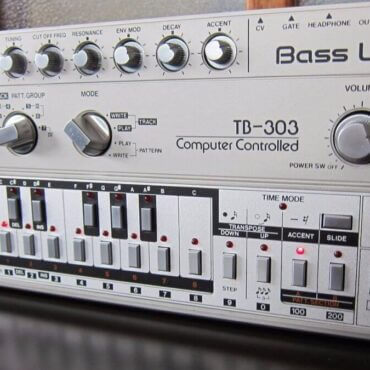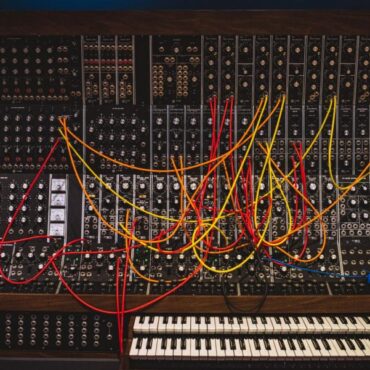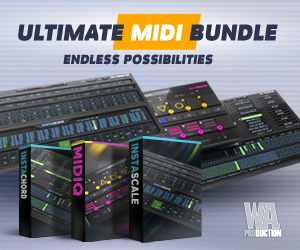Listeners:
Top listeners:
-
 play_arrow
play_arrow
EU Streaming Server 320 kbps DMT FM Psytrance Radio Online 24/7
The Inflences of Artificial Intelligence on EDM Music Production

The Inflences of Artificial Intelligence
on EDM Music Production
Electronic Dance Music (EDM) has become a global phenomenon, captivating audiences with its infectious beats and energetic rhythms. Over the years, advancements in technology have played a significant role in shaping the production process of EDM music. One such advancement is the integration of Artificial Intelligence (AI) into music production.
AI refers to the simulation of human intelligence in machines that are programmed to think and learn like humans. In the context of music production, AI algorithms can analyze vast amounts of data, recognize patterns, and generate music compositions. This technology has revolutionized the way EDM tracks are created, allowing producers to explore new creative possibilities and streamline their workflow.

AI in Music Composition
One of the primary applications of AI in EDM production is music composition. Traditionally, composers would spend hours crafting melodies, chord progressions, and arrangements. With AI, this process can be automated to a certain extent. AI algorithms can analyze existing tracks, identify common patterns, and generate new musical ideas based on these patterns.
For instance, AI-powered software like Jukedeck and Amper Music allows producers to input specific parameters such as genre, tempo, and mood. The software then generates original compositions that fit these criteria. This not only saves time but also provides producers with a starting point for their tracks.
AI in Sound Design
Sound design is another crucial aspect of EDM production. It involves creating unique and captivating sounds using synthesizers, samplers, and other digital instruments. AI technology has made significant advancements in this area as well.
Companies like Google’s Magenta project have developed AI models that can generate new sounds based on existing audio samples. These models use deep learning techniques to analyze the characteristics of different sounds and create variations or entirely new sounds based on this analysis.
Additionally, AI algorithms can also assist in automating repetitive tasks in sound design. For example, plugins like iZotope’s Neutron and Ableton Live’s Max for Live allow producers to apply AI-powered algorithms to tasks such as equalization, compression, and noise reduction. This frees up time for producers to focus on more creative aspects of their tracks.
AI in Mixing and Mastering
Mixing and mastering are critical stages in the production process that ensure the final track sounds polished and professional. AI technology has made significant strides in this area as well, offering tools that can assist producers in achieving better mixdowns and masters.
Plugins like iZotope’s Ozone and LANDR’s AI mastering service utilize AI algorithms to analyze audio tracks and make intelligent decisions regarding EQ, compression, stereo imaging, and other parameters. These tools can provide valuable suggestions to producers, helping them achieve a more balanced and cohesive sound.
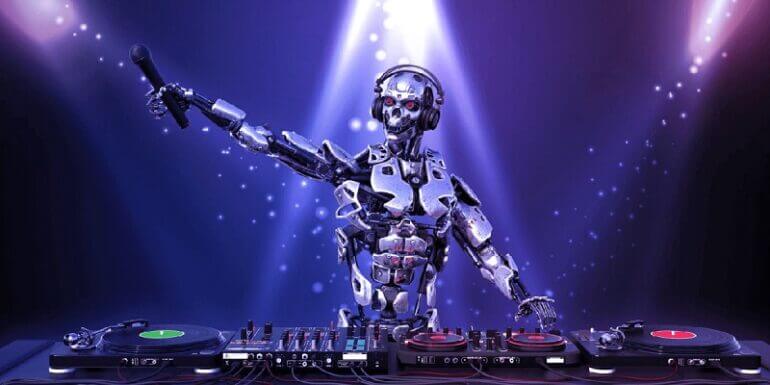
AI in Performance
In addition to the production process, AI has also found its way into live performances. AI-powered systems can analyze real-time data from various sources such as MIDI controllers, audio inputs, and audience reactions to generate dynamic visuals or control lighting effects. This adds an extra layer of interactivity and immersion to EDM performances.
For example, companies like V-Squared Labs have developed AI systems that can analyze audio signals in real-time and generate synchronized visual effects accordingly. This allows performers to create visually stunning shows that are tightly synchronized with the music.
The Future of AI in EDM Production
As AI technology continues to evolve, its impact on EDM production is likely to grow even further. Some potential future developments include:
1. Improved Music Generation: AI algorithms will become more sophisticated in generating original compositions that rival human creativity. They will be able to understand complex musical structures and create music that is indistinguishable from human-produced tracks.
2. Enhanced Sound Design: AI models will continue to improve in their ability to generate unique sounds and manipulate existing ones. Producers will have access to a vast library of sounds that can be easily customized to fit their tracks.
3. Real-Time Collaboration: AI-powered systems will enable real-time collaboration between producers, allowing them to work together remotely and exchange ideas seamlessly. This will break down geographical barriers and foster global collaboration in music production.
Top 3 Authoritative Reference Publications or Domain Names Used in Answering this Question:
1. EDM.com: A leading online publication dedicated to electronic dance music, providing news, interviews, and insights into the EDM industry.
2. MusicRadar: A popular website that covers various aspects of music production, including articles on AI technology in music production.
3. Google AI Blog: The official blog of Google’s AI research division, which provides updates on the latest advancements in AI technology and its applications in various fields, including music production.
Written by: Richard - DMT FM
Similar posts
Live On Air Now
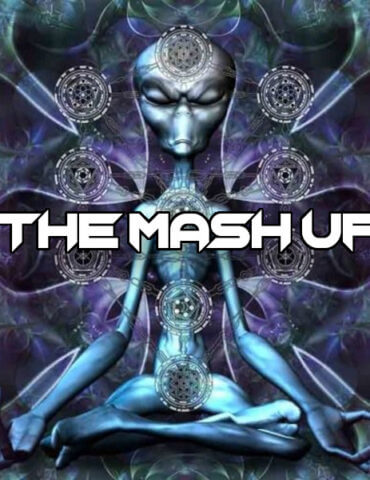
The Mash UP
Hosted by Computer DJ System
Mashup Psytrance is a subgenre of electronic dance music (EDM) that combines elements of psytrance with various other musical genres. It is characterized by its fusion of different styles, rhythms, and melodies, resulting in a unique and eclectic sound. This genre has gained popularity in recent years due to its ability to create dynamic and energetic tracks that appeal to a wide range of listeners.
close-
 Ektoplazm
EktoplazmMUSIC PRODUCTION
Upcoming shows

Goa Trance
Hosted by Computer DJ System
08:00 - 10:00
Dark Psytrance
Hosted by Computer DJ System
10:00 - 11:00
UK Psychedelic Trance
Hosted by Computer DJ System
11:00 - 13:00
Night Full-On Trance
Hosted by Computer DJ System
13:00 - 14:00MUSIC PRODUCTION
 Assorted Trance – News
Assorted Trance – News
Copyright 2019 @ DMT-FM Psytrance 24/7

